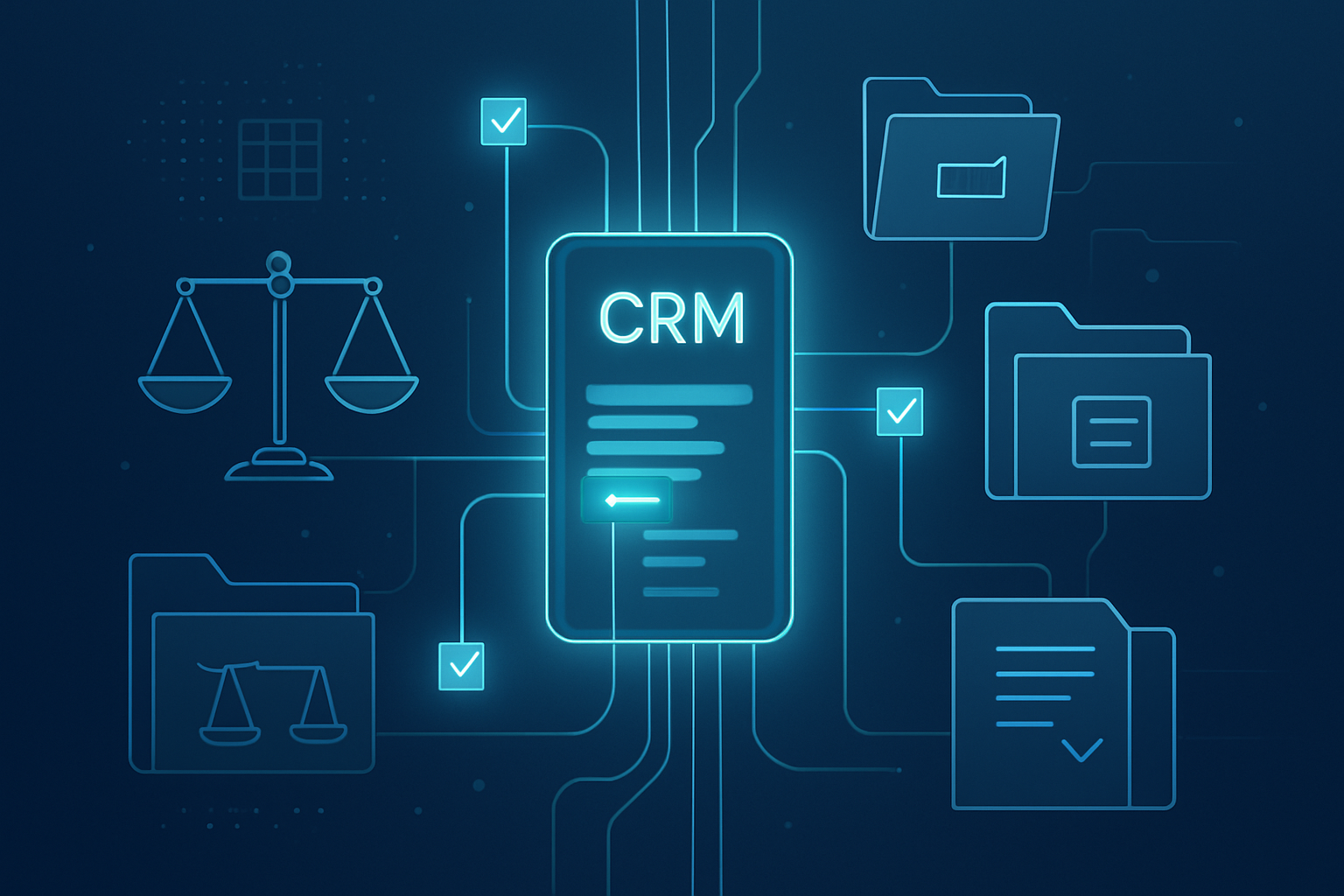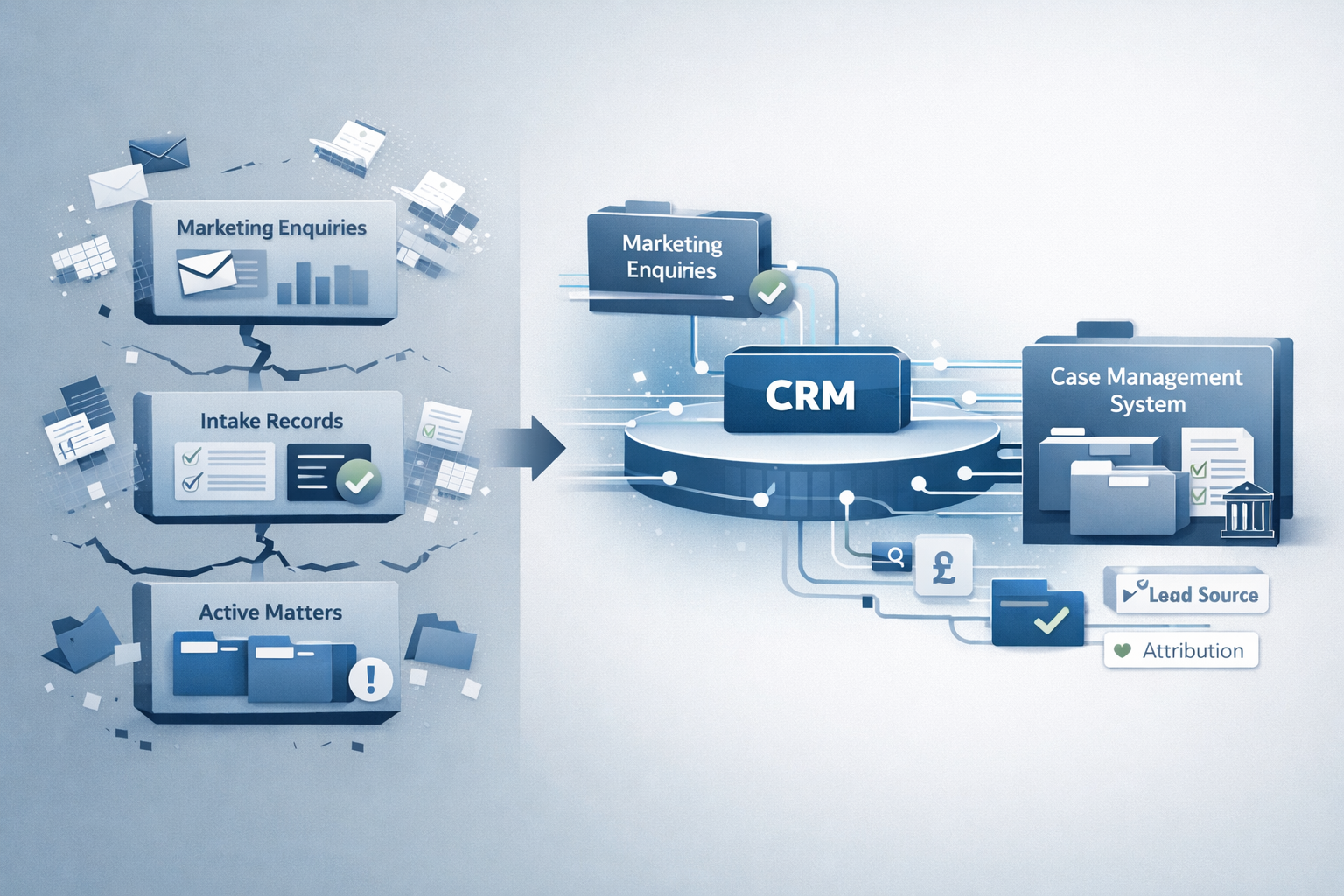The power of lead scoring in legal lead gen
Customer Experience
Sales & Marketing

Listen to this article:
As the legal environment grows more complex, effective legal lead gen strategies are becoming critical for firms. One of the most powerful tools to support your lead generation efforts is lead scoring. From rising competition and changing regulations to adapting to the evolving needs of their clients; to remain effective, firms must consider new strategies for growth and client retention.
One of the most powerful tools to help you do so is lead scoring, which allows your firm to prioritise leads on the strength of their genuine interest, ensuring you sift through non-starters and unresponsive leads to focus on those with true intent.
Better still, it means you can tailor your marketing strategies to target prospects based on their level of engagement - a solid way to create a stream of qualified leads and improve conversion rates.
So, what exactly is lead scoring, and why should it matter to your law firm?
What is lead scoring & does it matter for legal lead gen?
At its core, lead scoring is a system that ranks leads potential clients based on their likelihood to convert into actual customers. Law firms can use it to identify and focus on the most promising opportunities by considering various factors, including:
- Website behaviour: Actions like visiting key pages or downloading resources.
- Engagement with marketing campaigns: Email opens, clicks or event participation.
- Demographic information: Age, profession, location.
If you assign numerical values to these factors, you get a clearer picture of which leads are most likely to become clients.
Best practices for implementing lead scoring
For law firms, refining lead scoring is one of the easiest ways to strengthen lead generation performance. To make sure your firm gets the best out of lead scoring, we recommend keeping these pointers in mind:
- Define clear scoring criteria:
Establish what actions or behaviours constitute a ‘hot’ lead for your firm. For legal practices, consider sector-specific signals, such as attending a webinar on regulatory changes or downloading a legal resource guide. These behaviours often signal high intent in complex, high-stakes buying processes. - Use automation to simplify lead scoring:
Automating lead scoring within your CRM enables real-time updates based on a lead’s behaviour. It ensures anyone in your system is continuously evaluated without manual input, which makes the process significantly more streamlined. - Review and adjust your scoring model:
Lead scoring isn’t static. Over time, your model should reflect actual conversion data. For example, if a lead downloads a legal resource, attends a webinar and views your pricing page, they may cross your threshold score and trigger a personalised follow-up email or sales call. If behaviours like these consistently lead to signed clients, increase their value in your scoring model. - Integrate lead scoring with marketing campaigns:
Lead scoring is most effective when it’s integrated within your overall marketing strategy. You can automatically trigger follow-ups or targeted campaigns based on lead scores to move them further along the sales funnel. - Track lead engagement across multiple touchpoints:
Clients interact with your firm across many channels, including email, phone calls, social media, and more. Make sure your lead scoring system tracks all of these interactions for a holistic view of the lead's journey.
Benefits of lead scoring for law firms
First, and most importantly, lead scoring gives you a clear view of your most promising leads, meaning that time and resources are focused on prospects with the highest potential to convert. Evaluating leads based on behaviours, interactions and demographic details parses out the individuals most likely to need your specific services.
Prioritising high-scoring leads also improves conversion rates by ensuring your team engages with leads most likely to take action. When your team prioritises leads that show obvious intent — think booking a consultation or submitting a contact form — you can prioritise outreach where there’s proven interest.
Lead scoring also helps you to personalise outreach. For someone clearly interested, that could mean a direct call or a targeted case study. For those still circling, it might be a helpful guide or a relevant insight - something that builds trust over time.
Plus, when your team knows exactly when to engage, they stop pursuing unresponsive contacts. Lead scoring shows you exactly who’s ready and when. That timing is everything, as it means there are fewer missed opportunities.
Combining lead scoring and Content Experience for better results
To get the most out of your lead scoring efforts, it’s essential to keep them aligned with your content strategy. A strong content marketing plan complements lead scoring, as it delivers the right message to the right person at the right time.
If you’re looking to attract the right leads in the first place, check out our article on how law firms can use content to get the leads they actually want. It’s a valuable resource that shows how content can boost lead generation and conversions.
These are just a few of the essential steps to getting started with lead scoring. To get deeper insights - and learn how to fully set up and optimise your system - our consultants can help you implement a lead scoring system tailored to your firm’s needs.
We’ll guide you through every step of the process, so your lead scoring strategy is not only effective but also matches up with your business goals.
Book a consultation today to start attracting the leads you want.


